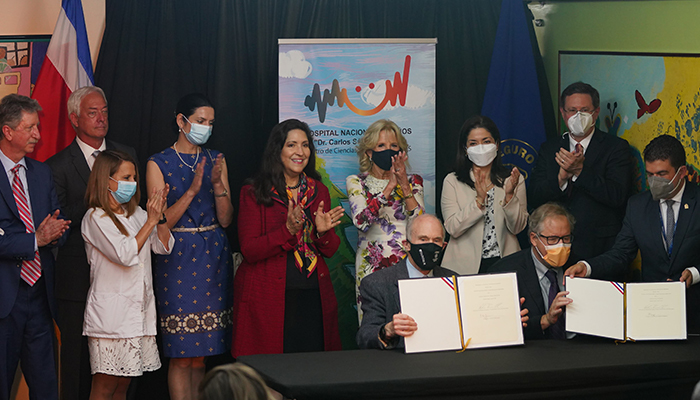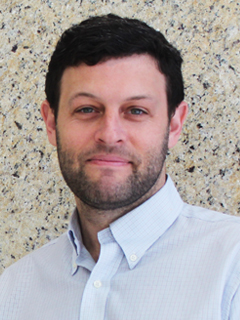HOW CAN WE HELP YOU? Call 1-800-TRY-CHOP
In This Section
Breastfeeding, Allogeneic CART, Costa Rica Partners, CPR Education, Cognitive Outcomes

mccannn [at] chop.edu (By Nancy McCann)
With the unofficial start of summer upon us, we offer your first summer reading: this week's coverage of research from Children's Hospital of Philadelphia. Check out these research headlines to learn about a PhD nurse whose breastfeeding knowledge is in demand with two influential policy-making groups, a study that tested and developed a chimeric antigen receptor T-cell (CART) using base editing, and a CHOP-Penn partnership with Costa Rica for CAR T-cells. Don't miss the stories about the benefits of CPR education in high school, and whether rare genetic variations are associated with lower cognitive ability.

Diane Spatz, PhD, RN-BC, FAAN
PhD Nurse Serves in Two Influential Policy-making Leadership Roles
Diane Spatz, PhD, RN-BC, FAAN, a nurse scientist focused on breastfeeding and human lactation, has been elected to the Board of Directors for the International Society for Research in Human Milk and Lactation (ISRHML), a nonprofit organization dedicated to the promotion of excellence in research and the dissemination of research findings in the field of human milk and lactation. Dr. Spatz has served on the ISRHML's executive committee.
"Having PhD nurses serve on boards is critical to show nursing leadership globally," Dr. Spatz said. "ISRHML brings scientists from around the world together, which ultimately benefits children and families through the lifesaving power of human milk."
Also tapping into Dr. Spatz's breastfeeding knowledge is The National Academies of Sciences, which appointed her to the planning committee for the "Inclusion of Pregnant and Lactating Persons in Clinical Trials - A Workshop." This committee will organize the workshop, develop the agenda, select and invite speakers, and moderate or identify moderators for the discussions.
"I am extremely honored to be appointed to the National Academy of Sciences workgroup as the only PhD nurse and as the person who is the voice of lactation," Dr. Spatz said. "This appointment follows my four year service to the congressional Taskforce on Research Specific to Pregnant Women and Lactating Women and signifies the importance of nurses serving in influential policy-making leadership roles."

David Teachey, MD
Allogeneic CART for Relapsed or Refractory T-ALL Developed Using Base Editing
CHOP researchers, in collaboration with Beam Therapeutics, tested and developed an "off-the-shelf" chimeric antigen receptor T-cell (CART) using base editing, which is designed to allow for precise editing of the CART with less risk of unwanted and unforeseen outcomes that may accompany other editing methods. The CART, known as 7CAR8, targets the surface receptor CD7, which is highly expressed on a vast majority of T-cell acute lymphoblastic leukemia (T-ALL) blasts. It was found to be highly active against T-ALL in multiple preclinical models.
In the setting of relapsed or refractory disease, T-ALL often does not respond to chemotherapy and chance of cure is low. The goal is for 7CAR8 to be an effective and life-saving therapy for these patients, if approved. Study findings appeared in the journal Blood.
"Studies in the laboratory suggest 7CAR8 is highly active in preclinical models and could potentially be a curative therapy for children and adults with relapsed or refractory T-ALL, if approved," said senior study author David Teachey, MD, director of Clinical Research at the Center for Childhood Cancer Research at CHOP and co-leader of the Immune Dysregulation Frontier Program at CHOP. "It also has potential for use as a treatment for other CD7+ malignancies such as T-cell lymphoblastic lymphoma and subsets of acute myeloid leukemia. Based on these results, we plan to translate 7CAR8 into the clinic for children and adults with relapsed or refractory T-ALL. This highly adaptable editing approach also has the potential for use to create 'off-the-shelf' CARs for other immunotherapy targets."
See this CHOP press release for more information.

CHOP and Penn Partner With Costa Rica for CAR T-Cell Therapy Research, Treatment
CHOP and the Perelman School of Medicine at the University of Pennsylvania, whose scientists pioneered the research and development of the world's first personalized cellular therapy for cancer, or CAR T-cell therapy, announced plans with Costa Rica's Social Security Program, the Caja Costarricense de Seguro Social (CCSS), to facilitate CAR T research in Costa Rica. The effort is a step toward global equity in clinical research opportunities involving the use of CAR T-cell therapies, which represent a leading-edge approach to cancer care not widely available across the world.
The announcement took place earlier this week at the National Children's Hospital in San Jose, Costa Rica. In attendance were First Lady Jill Biden, representatives from CHOP and Penn, along with U.S. Ambassador to Costa Rica Cynthia Telles, PhD.
"Our program has been privileged to be part of the safe rollout of CAR T therapy around the world, but as with many of these cutting edge therapies, availability has been limited in middle income countries," said Stephan Grupp, MD, PhD, director of Translational Research in the Center for Childhood Cancer Research and inaugural director of the Susan S. and Stephen P. Kelly Center for Cancer Immunotherapy at CHOP. "Given the importance of equity and access, our work with Costa Rica may provide a template for further expanding the safe use of CAR T globally. Costa Rica has an outstanding universal health system with a strong commitment to accessible medical care, and we look forward to continuing this collaboration."
Learn more at CHOP News.

Victoria Vetter, MD
CPR Education in High Schools is Proving Beneficial
Higher rates of bystander CPR occur in states with laws that require CPR training, and low economic status communities could see the greatest benefits from help in enacting CPR/AED education mandates, according to CHOP researchers. These findings, from the first study to compare rates of bystander CPR in states that have and have not enacted CPR education laws, were published in the Journal of the American College of Cardiology.
The researchers analyzed data from the Cardiac Arrest Registry to Enhance Survival (CARES) from Jan. 1, 2013, through Dec. 31, 2020 and included all 911-activated non-traumatic out-of-hospital cardiac arrest events where CPR or AED use was attempted.
"Communities in the United States with higher rates of bystander CPR experience higher survival after cardiac arrest," said lead author Victoria Vetter, MD, an attending cardiologist and medical director of Youth Heart Watch at CHOP. "The results of our study should encourage states that have passed CPR education laws to enact and implement them in a uniform fashion as soon as is feasible and should urge those states without such laws to pass them as soon as possible."
For more information see these press releases from CHOP and the American College of Cardiology.

Aaron Alexander-Bloch, MD, PhD
Can Genetics, Environment Contribute to Psychiatric and Cognitive Outcomes?
CHOP researchers integrated environmental, genetic, and imaging data to better understand which factors might be clinically relevant when it comes to psychiatric and cognitive outcomes. The findings, published in JAMA Psychiatry, showed elevated risk from rare genetic variations, known as copy number variants (CNVs), was associated with lower cognitive ability, higher psychopathology, and greater deviations from typical brain development, measured via brain growth charts also created by the team at CHOP and co-authors in a study published in Nature.
"Our study represents a step toward synthesizing rare genetic, common genetic, and environmental factors to improve our understanding of their associations with clinically relevant outcomes in youth," said first author Aaron Alexander-Bloch, MD, PhD, director of the Brain-Gene-Development Laboratory at CHOP. "Future studies should continue to investigate the possibility of convergent molecular or functional pathways mediating the association between CNV risk scores and developmental outcomes and potentially optimizing risk scores for specific psychiatric conditions."
ICYMI
Catch up on our headlines from our May 13 In the News:
- Pilot Study to Evaluate Follow-up Care in Young Cancer Survivors
- Study Elucidates Information about COVID-19 Severity in Children
- Two CHOP Oncologists Recognized for Contributions to Pediatric Oncology
- New Computational Tool Interprets Clinical Significance of Cancer Mutations
- Exercise Performance in Children and Young Adults Declined During Pandemic
Keep up with our news, stories, and updates in real time by following us on Twitter, Facebook, LinkedIn, or Instagram. Or subscribe to our newsletter to get an email sent every other Friday by signing up here.


